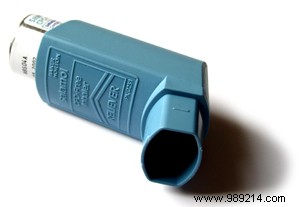 Currently, one third of French people suffer from allergies from all causes and all symptoms combined. The allergic reaction can take various forms - respiratory (one in two cases), skin, food - which quickly ruin our lives:a pathology which is not insignificant since it can lead to complications and, in the most serious cases, fatal shocks.
Currently, one third of French people suffer from allergies from all causes and all symptoms combined. The allergic reaction can take various forms - respiratory (one in two cases), skin, food - which quickly ruin our lives:a pathology which is not insignificant since it can lead to complications and, in the most serious cases, fatal shocks.
What is the cause of this condition and what means exist to stop its most disabling effects?
Between a third and a quarter of the French population has an allergy. The incidence of this disease – because it is indeed one, which deserves to be diagnosed and treated accordingly – is constantly changing due to the upheavals in our lifestyles.
The most encountered allergies are respiratory (hay fever, allergic rhinitis) and food (milk, egg, peanut, gluten) but contact allergy to certain chemical substances (cleaning products, latex) or to drugs also strikes .
The allergic symptom corresponds to an exacerbation of the reactions of the immune system in contact with normally harmless molecules:pollen, dust, mites, lactose... which can lead to asthma, rhinitis, skin rashes or, in certain extreme cases, anaphylactic shock or edema de Quincke (tissue swelling) sometimes fatal.
In the presence of allergens responsible for intolerance (animal hair, dust, mold are so-called "domestic" allergens) different reactions can occur:allergic rhinitis triggers runny nose, sneezing, eye irritation, shortness of breath... Chronic or seasonal, this type of rhinitis can lead to asthma attacks if left untreated.
In terms of food allergies, although the culprits are now well known, they do not necessarily cause the same reactions:peanuts, for example, contain allergenic amino acids and can cause diarrhea, nausea, vomiting and/or flare-ups. urticaria according to the subjects. It is then necessary to try to "detect" peanuts in all the food products encountered. Allergies to cow's milk or gluten can cause diarrhea, bloating and eczema.
 However, allergies are not inevitable:there are treatments that allow you to live with them, without suffer from these symptoms on a daily basis.
However, allergies are not inevitable:there are treatments that allow you to live with them, without suffer from these symptoms on a daily basis.
To limit the risk of respiratory allergies, especially dust mites, nothing beats a weekly cleaning and impeccable hygiene in terms of bedding (changed every 7 to 10 days). Avoid pets, carpeting and feather pillows in the bedroom.
On the treatment side, antihistamines (Aerius or Kestin) reduce or even eliminate allergic symptoms but do not eradicate the cause:only desensitization acts on the immune system by inducing a tolerance of the body towards the allergens which are in question. It is the only curative treatment for allergies:imperatively checked by an allergist, it is done by subcutaneous injection or sublingually.